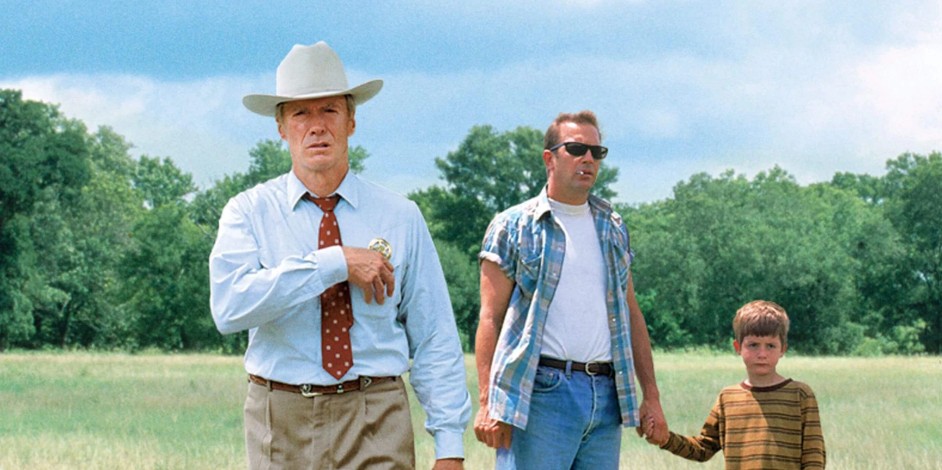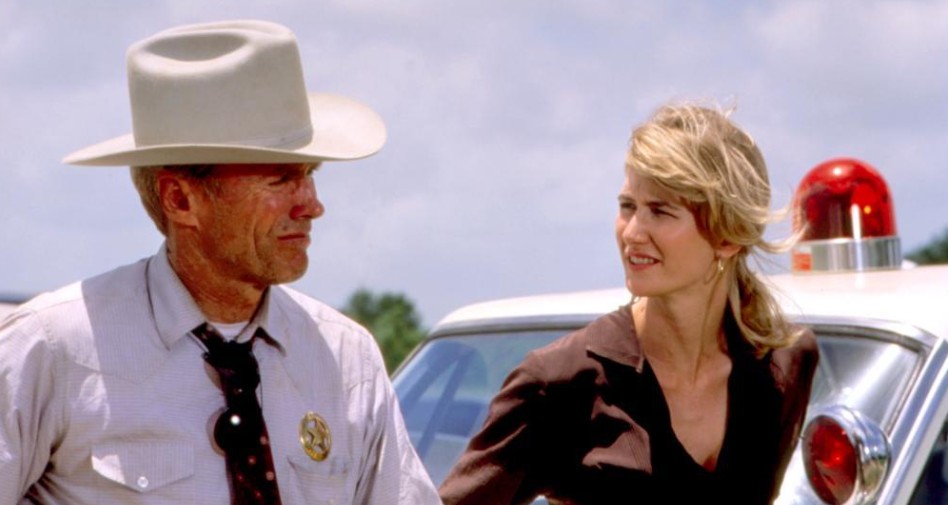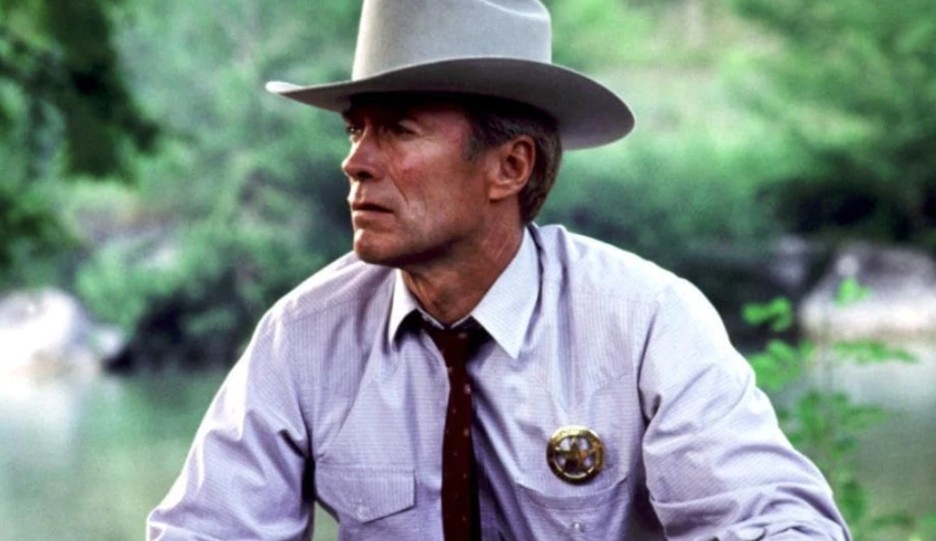Ah, the magic of Hollywood—where the best of the best meet, clash, and sometimes create timeless masterpieces. But even the gods of the silver screen aren’t above locking horns.
When Clint Eastwood and Kevin Costner collided on the set of A Perfect World, sparks flew. It’s not your typical behind-the-scenes drama…this was a more subtle clash, a battle of wills, where Eastwood showed why he’s called ‘the man with no compromise’.
But here’s where the rubber meets the road. The tension? It began over one simple scene, where Costner wasn’t quite ready for his moment. Eastwood, the seasoned director, didn’t wait for anyone, especially not for a star who was late to the game. Instead, he did what Eastwood does best: he got the job done his way.
Clint Eastwood and Kevin Costner’s tense collaboration amid creative clashes
 Clint Eastwood and Kevin Costner in A Perfect World | Credit: Warner Bros.
Clint Eastwood and Kevin Costner in A Perfect World | Credit: Warner Bros.
A Perfect World was supposed to be the film that brought together two giants. After all, Clint Eastwood, fresh off the success of Unforgiven, was diving into directing with renewed zeal, and Kevin Costner, hot off Dances with Wolves and Robin Hood, was an actor at the peak of his powers. But as the old saying goes, “The man who argues with the master gets lost in the details,” and in this case, Eastwood’s resolve was the masterstroke.
Eastwood was no stranger to being in control on set. As his longtime cinematographer, Jack Green, recalled (via Esquire), Eastwood is someone who doesn’t need to shout or raise his voice to command respect.
He simply is the boss. But then, enter Costner. The star of the film. The one who wanted his poster moment. But instead of a seamless partnership, things got a little…dicey.
On the set of A Perfect World, Eastwood asked Costner to come to the set for a particular scene. Costner, in his typical starry fashion, wasn’t ready yet. Now, the director told the crew to “find his extra,” and off they went shooting the scene with a stand-in. This didn’t sit too well with Costner. The actor came out of his trailer, all set to do the scene—but Eastwood wasn’t having it.
Eastwood said coolly:
We’re moving on.
It was clear that the director had made up his mind. He was running the show, not the star. The next exchange? Priceless. Costner, unable to hide his frustration, asked, “You shot the scene with my extra?” To which Eastwood responded in classic Eastwood fashion:
I get paid to burn film.
In other words, Eastwood didn’t need Costner’s tantrums holding up the progress. To him, it was only about getting the job done, no matter what.
More on Kevin Costner and Clint Eastwood’s unlikely partnership in A Perfect World
 A Perfect World | Credit: Warner Bros.
A Perfect World | Credit: Warner Bros.
There’s no sugar-coating it—when you bring together two legends with completely different approaches, you’re asking for a storm.
Writer John Lee Hancock and producer Mark Johnson knew they were taking a gamble when they paired Clint Eastwood and Kevin Costner for A Perfect World (via LA Times). Many predicted the collaboration would end in flames, and for a while, it seemed like they might be right.
At first, Costner wasn’t too concerned with Eastwood’s unconventional methods. His main goal was simple: get Eastwood to play the Texas Ranger role. But as the days on set wore on, their differences began to show.
Eastwood, who famously avoided rehearsals, believed in capturing the raw, spontaneous moments that came from being in the moment on set. Costner, on the other hand, wanted nothing more than to analyze and perfect every scene before they shot it. It wasn’t long before these conflicting philosophies caused tension on set. The clashes escalated to the point where Costner, frustrated, stormed off the set.
But despite these challenges, the end result was far from disastrous.
 Clint Eastwood in A Perfect World | Credit: Warner Bros.
Clint Eastwood in A Perfect World | Credit: Warner Bros.
A Perfect World earned praise from critics, with many singling out Eastwood’s direction and Costner’s standout performance. The film found a much stronger audience abroad, grossing a respectable $135 million worldwide. The box office performance proved that even with all the behind-the-scenes turmoil, the film struck a chord with viewers around the globe.
We’ll leave you with this thought: Creativity isn’t always pretty. Sometimes, it’s messy, chaotic, and downright difficult. But in those moments of tension, there’s potential for something truly remarkable.
A Perfect World is now available for rent on AppleTV+ in the U.S.